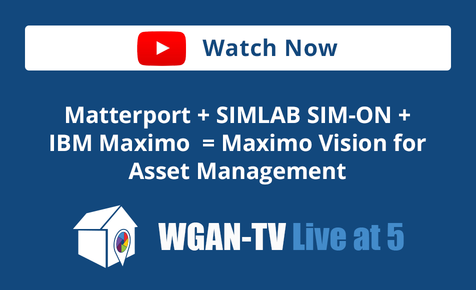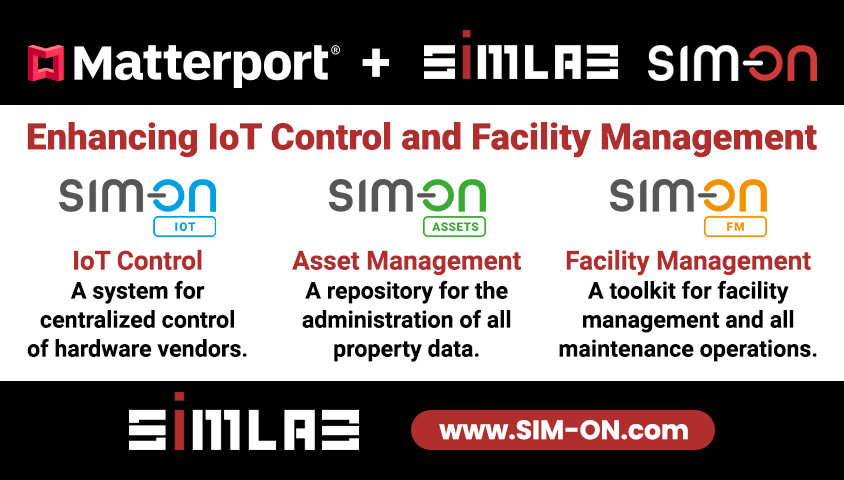Matterport Use Cases: BIM, Measurements and Renovation Documentation10140
Pages:
1
 WGAN Forum WGAN ForumFounder & WGAN-TV Podcast Host Atlanta, Georgia |
DanSmigrod private msg quote post Address this user | |
| Customer Stories - SHP easily captures accurate measurements and site information for BIM | Vern Hendrickson, the Director of Technology and BIM Manager at SHP | Video courtesy of Matterport YouTube Channel (17 September 2019) Hi All, This Matterport (video) show how a BIM Manager for an architecture engineering firm specializing in schools uses Matterport: ✓ Measurements of existing spaces meets BIM model for new space (Revit) ✓ Renovation Documentation ✓ Easier BIM modeling of existing spaces ✓ Reduce repeat visits to job site for BIM Your thoughts? Best, Dan P.S. Here is a transcript of the video: Vern Hendrickson, the Director of Technology and BIM Manager at SHP I'm Vern Hendrickson, the Director of Technology and BIM Manager at SHP based out of Cincinnati, Ohio, about a 118-year-old architecture engineering firm. We do a lot of schools, a lot of K-12 schools, higher ed, as well as workplace design. Because we do have so many renovation projects, we need to have a good model to start with. We're a 100% Revit firm, and we need a good base model. Prior to getting involved with Matterport, we would send multiple people out onsite, take some measurements, come back, draw it up, take some more measurements, go back, draw it up, take more measurements, and then we get to design and we still realize, "Well that's not right." So we knew we needed something better, not to mention something that could be integrated with the model. So that's why we were certainly very excited to get on board with Matterport. It's such an easy, easy camera to use. We recently did a scan of a building where we took the Matterport out, we were out there for one day, did the entire scan, all the while constantly looking at the iPad, we're seeing exactly what we've covered, what we haven't. At the same time, another engineering firm was scanning a project with a laser scanner; they happened to be there for four or five days to do this particular campus, and they kept making comments, "I hope I got this, we think we got it." It's just nice to know right then and there, "Yep, we got it all." That's what we need so that we can very confidently go back to the office and know we're done, we don't have to go back out onsite. Sometimes we will actually model from the point cloud itself as a background, sometimes we will model and then let the point cloud be an overlay to verify that what we're doing is correct. One of the biggest benefits we we get out of using the Matterport is being able to constantly go back into the Workshop and grab dimensions for the things that we didn't get a dimension for when we were onsite. We had a higher ed project up in northern Ohio about three hours away from our office. The biggest benefit we got from the Matterport on this higher ed project was just being able to constantly go back to the space. What's really going on there? Can we leave that ceiling, can it come up? What is that going to look like if we leave the concrete? Was that in good condition, or was it the other part that was in good condition? Do we need to plan on painting that or not? We're constantly going back into that model to see what the condition of the space is and what's really there. And for us, it's a three-hour drive, we can't do that for every one of those questions. We like to have the answers right away, and this has given us that flexibility and that information at our fingertips. Having the point cloud give us that data that's accurate, that's what we need, is invaluable. It's a critical piece of BIM, the I in BIM, that Information. It happens to help us create the model, but it's the information that we're getting from it that's the most important. Having that data allows them to put a better budget together, put a better scope of work together, and ultimately, the fewer unknowns you have, the greater your accuracy on projecting that cost will be. ROI could be calculated as, "Yes, we saved three trips and we only took one person out there." But how do you calculate the ROI on, "Well, we actually never would have used that data, and now we're actually using it to make a different decision, a better decision, in the future." |
||
| Post 1 • IP flag post | ||
Pages:
1This topic is archived. Start new topic?
















